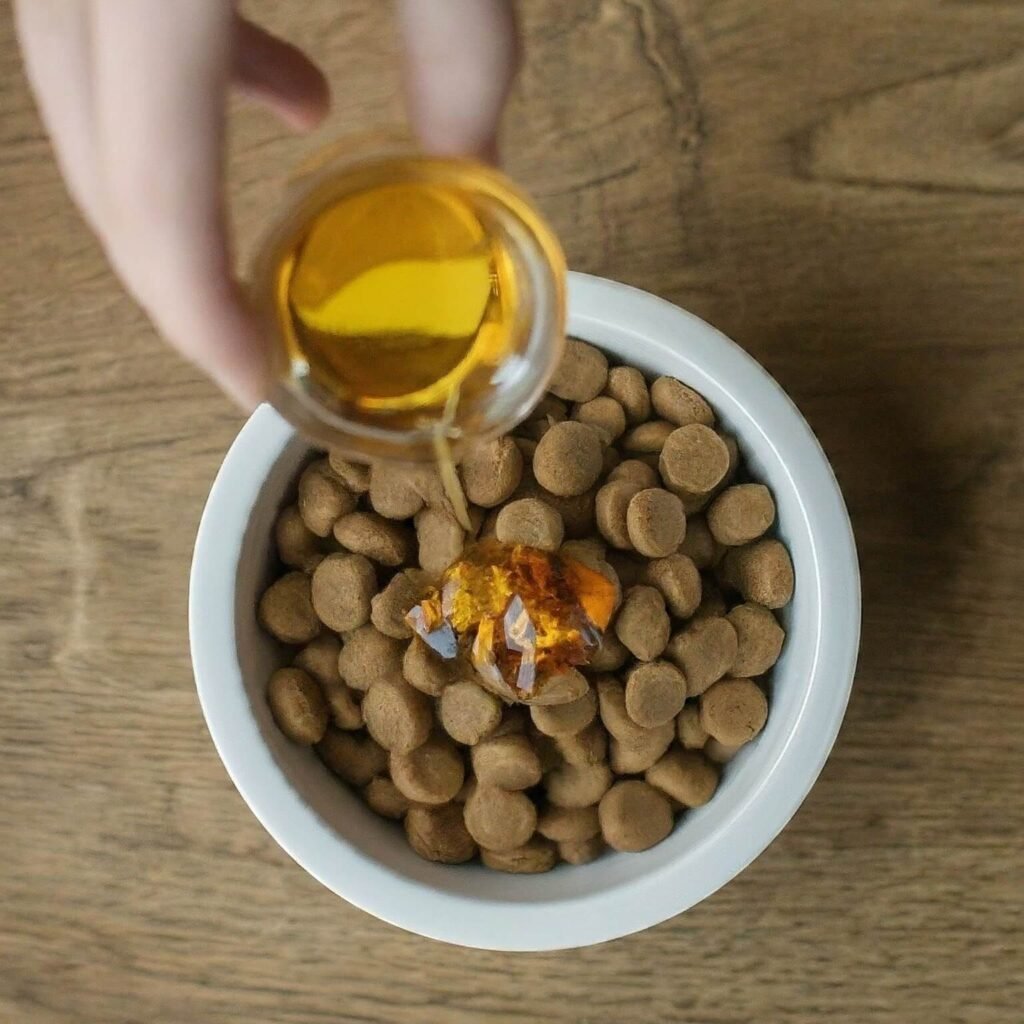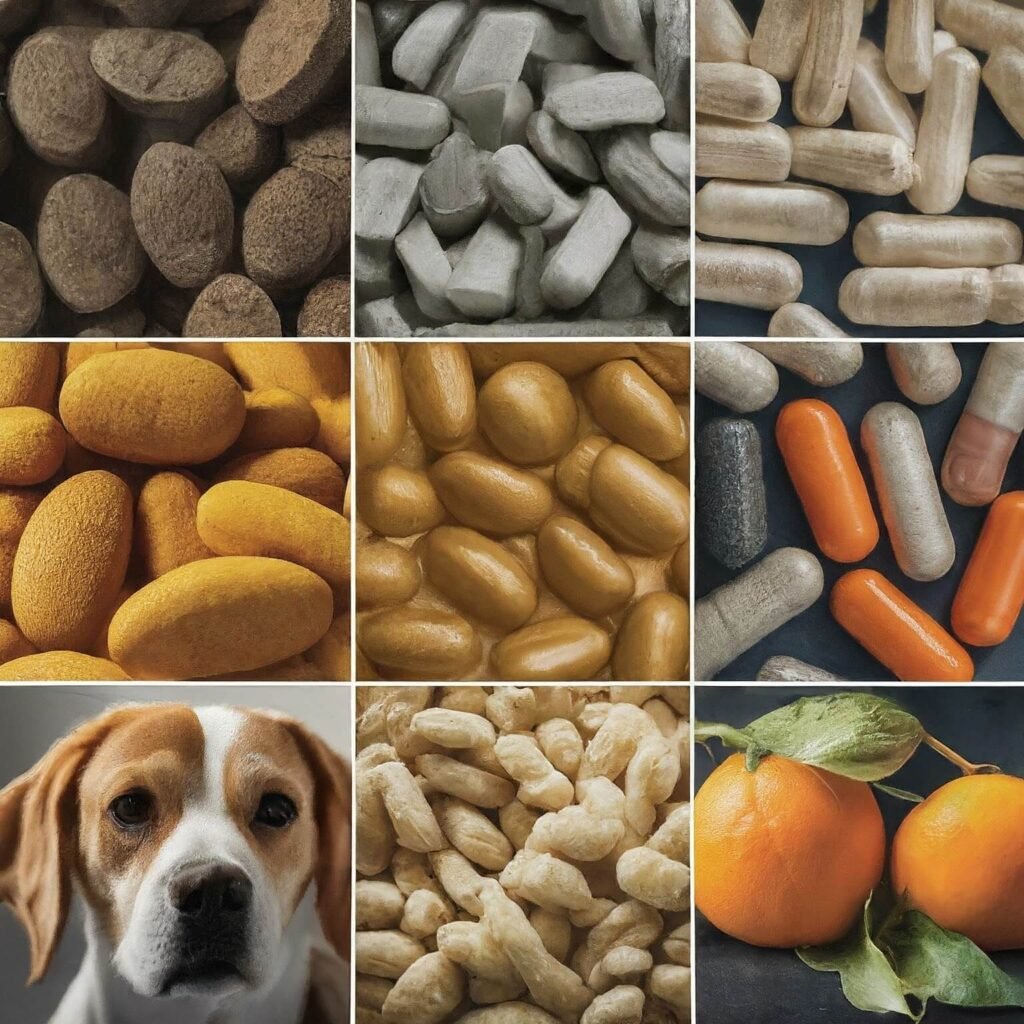Many dog owners are interested in natural ways to enhance their furry friend’s well-being. One approach gaining traction is incorporating oils into their diet. But with various options available, understanding the potential benefits and choosing the right product can be confusing. This comprehensive guide explores the world of oils for dogs, delving into their diverse applications and addressing common questions.
Understanding the Role of Oils in Canine Nutrition
Dogs, like humans, require essential fatty acids for optimal health. These fats cannot be synthesized by the body and must be obtained through their diet. While commercially prepared dog food aims to provide a balanced nutritional profile, some owners choose to supplement their pet’s diet with additional oils, believing it can offer various advantages.

Exploring Different Types of Oils for Dogs:
Several types of oils can be beneficial for dogs, each offering unique properties:
- Fish Oil: Rich in omega-3 fatty acids, particularly EPA and DHA, fish oil is widely acclaimed for its potential to support skin and coat health, alleviate joint pain and inflammation, and even enhance cognitive function. Popular options include salmon oil and herring oil.
- Hemp Seed Oil: Gaining popularity, hemp seed oil is a source of omega-3 and omega-6 fatty acids, promoting healthy skin and coat. Additionally, it may offer benefits for anxiety, allergies, and even arthritis.
- Coconut Oil: This versatile oil contains medium-chain triglycerides, which are easily absorbed and used for energy by the body. It may also contribute to improved digestion, skin health, and weight management.
- Olive Oil: While not as rich in essential fatty acids as other options, olive oil can provide a source of healthy fats and antioxidants, potentially benefiting heart health and digestion.
Important Note: It’s crucial to consult your veterinarian before introducing any new supplement, including oils, to your dog’s diet. They can guide you on the appropriate type, dosage, and potential interactions with existing medications.
Addressing Concerns about Canola Oil in Dog Food:
Some dog owners express concerns about canola oil, a common ingredient in many commercially prepared dog foods. While generally considered safe, some studies raise questions about its potential impact on canine heart health. Discussing these concerns with your veterinarian can help you determine if an alternative diet or oil supplementation is necessary for your specific dog.

Highlighting Popular Products:
- ElleVet Soft Gels: These veterinarian-developed soft gels contain a blend of hemp seed oil, olive oil, and other ingredients formulated to support skin and coat health, joint health, and overall well-being.
- PawTree Wild Alaskan Salmon Oil: This liquid supplement provides a concentrated source of omega-3 fatty acids from wild-caught Alaskan salmon, potentially benefiting skin, coat, joint health, and immunity.
Remember: These are just examples, and numerous other oil-based supplements cater to various canine needs. Consulting your veterinarian can help you choose the most suitable product for your dog.
Benefits of Adding Oil to Your Dog’s Diet (Potential):
- Improved Skin and Coat Health: Essential fatty acids present in many oils can promote a healthy, shiny coat and potentially alleviate dry, itchy skin.
- Joint Health Support: Omega-3 fatty acids may help reduce inflammation associated with arthritis, providing relief from joint pain and stiffness.
- Digestive Aid: Certain oils, like coconut oil, may aid digestion and nutrient absorption.
- Enhanced Immune System Function: Some oils, like olive oil, contain antioxidants that may bolster the immune system.
Important Considerations:
- Start Slowly: When introducing any new oil, begin with a small amount and gradually increase the dosage over time, monitoring your dog for any adverse reactions.
- Dosage Matters: Over-supplementing with oils can lead to digestive upset or weight gain. Always follow the recommended dosage based on your dog’s size and consult your veterinarian for guidance.
- Quality Matters: Choose high-quality, human-grade oils that are cold-pressed and free of additives or preservatives.

Frequently Asked Questions (FAQ):
Q: What is the best oil for my dog?
A: The best oil for your dog depends on their individual needs and health considerations. Consulting your veterinarian is crucial to determine the most appropriate option.
Q: Can I give my dog human-grade olive oil?
A: While small amounts of human-grade olive oil are generally considered safe, it’s always best to consult your veterinarian before introducing any new dietary changes.
Q: How much oil should I give my dog?
A: The appropriate dosage varies depending on the oil, your dog’s size, and their specific needs. Refer to the product label or consult your veterinarian for individualized guidance.
Conclusion:
Incorporating oils into your dog’s diet, under the guidance of a veterinarian, can potentially offer several health benefits. Exploring different types of oils, understanding their properties, and choosing high-quality products are crucial for responsible supplementation. Remember, open communication with your veterinarian is key to ensuring the safety and effectiveness of any dietary changes for your beloved canine companion.
Additional Considerations:
- Age and Breed: Specific needs may vary based on your dog’s age, breed, and overall health status.
- Dietary Allergies: Some dogs may have allergies to certain oils, so consulting your veterinarian is essential to avoid potential adverse reactions.
- Potential Interactions: Certain oils may interact with medications your dog is taking, so discussing supplements with your veterinarian is crucial.
By making informed decisions and prioritizing your dog’s well-being, you can explore the potential benefits of incorporating oils into their diet and contribute to their overall health and happiness
Table 1: Summary of Common Oils for Dogs
| Oil | Key Features | Potential Benefits |
|---|---|---|
| Fish Oil (e.g., salmon oil, herring oil) | Rich in omega-3 fatty acids (EPA & DHA) | Skin & coat health, joint health, cognitive function |
| Hemp Seed Oil | Source of omega-3 & omega-6 fatty acids | Skin & coat health, potential benefits for anxiety, allergies, arthritis |
| Coconut Oil | Contains medium-chain triglycerides | Improved digestion, skin health, weight management (potential) |
| Olive Oil | Source of healthy fats & antioxidants | Heart health, digestion (potential) |
Remember: This table is for informational purposes only and does not constitute veterinary advice. Always consult your veterinarian before introducing any new supplements to your dog’s diet.



